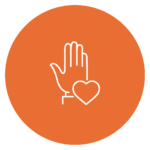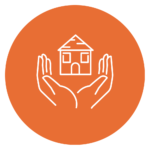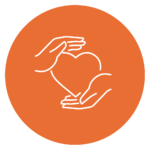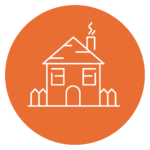What is domestic violence?

What is domestic violence?
Domestic violence means abuse
Domestic violence is often called “domestic and family violence” because it’s not just partners that abuse.
Domestic and family violence means any type of abuse that creates fear and controls another person, often causing physical, sexual and/or psychological damage, forced social isolation and economic deprivation.
Domestic and family violence usually means abuse against an intimate partner (including same sex relationships and ex-partners). But it can also occur between siblings, from adolescents to parents, or from family carers to a relative. Domestic and family violence can also include the abuse of children and young people, older people, people with a disability and other family members.
Types of abuse
Types of abuse
- Physical abuse
This may include hurting you (pushing, hair-pulling, spitting, slapping, punching, choking, kicking), or threatening to hurt you, a loved one or a pet.
But not all abuse is physical. If someone in your life regularly controls, threatens or insults you, stops you using social media or won't let you contact your friends, it can harm you just as much as physical violence.
Here are some of the forms that abuse may take:
- Financial abuse
Taking, stealing or controlling your money, denying you access to money or telling you what you can and can’t buy. You'll find more information on financial abuse and how to deal with it here.
- Sexual abuse
Pressuring, manipulating or forcing you into sexual activities you don’t want to do. Being "forced" also means not being in a position to say no as a result of fear, threats or intimidation.
- Emotional abuse
This form of abuse is often unrecognised and can be very hurtful. Mind games, manipulation, threats, humiliation, put-downs, shouting, telling you that you're worthless or no good – these are all types of emotional or psychological abuse.
- Social abuse
If someone is insulting you or teasing you in front of other people, keeping you isolated from family, friends and work, controlling what you do and where you go, then they are being abusive and you may need to take some action
- Spiritual abuse
This type of violence involves a situation where you are not allowed to go to your place of worship or not allowed to have your own opinions about religion, cultural beliefs and values. Your spirituality is manipulated to keep you feeling powerless, or you are forced to participate in religious practice you do not want to be involved with.
- Technological or digital abuse
Some abusers use social networks, emails and text messages to control you. This includes high-tech eavesdropping, video-monitoring the home, tracking your location with GPS devices and tampering with phone bills or emails.
Ways that texting and social media can be used to bully, harass, stalk or intimidate you include:
- Telling you who you can or can’t be friends with on Facebook and other sites
- Sending you negative, insulting or threatening emails, Facebook messages, tweets or other online messages
- Using sites like Facebook, Twitter, foursquare and others to keep constant tabs on you
- Stealing or insisting you share your passwords
- Constantly texting you and punishing you if you don't respond
- Looking through your phone frequently to check up on your pictures, texts and outgoing calls
- Tagging you in negative ways in pictures on Facebook, Instagram, Tumblr, etc.

Your rights as a human being
Every human being has the right to control their own life. This includes:
- Being safe all the time.
- Being treated with respect.
- Being safe from abuse.
- Being able to receive support and friendship.
- Being treated as an equal.
- Having control of your own finances.
- Being free to leave a place if you are feeling unsafe.
- Being able to say what you think and feel.
- Being able to protect yourself and your children.
- Being able to seek legal assistance.
- Being able to contact community groups.
- Being able to choose your own religion.
Recognising the signs
Is there someone in your life who is behaving in some or all of the following ways?
- Do you have to be careful around this person because of their anger, violence or emotional abuse?
- Are you pressured by this person into sexual activities you are not comfortable with?
- Are you are too scared to disagree with this person?
- Is this person always checking up on what you are doing?
- Does this person say you are stupid or useless?
- Does this person threaten you, your family or your pets?
- Does this person stop you going out or doing what you want to do?
- Are you unable to spend time with family or friends because this person won’t let you?
- Do you make excuses for this person’s violent behaviour?
If so, you may want to seek assistance or contact a Starick worker to discuss your situation




